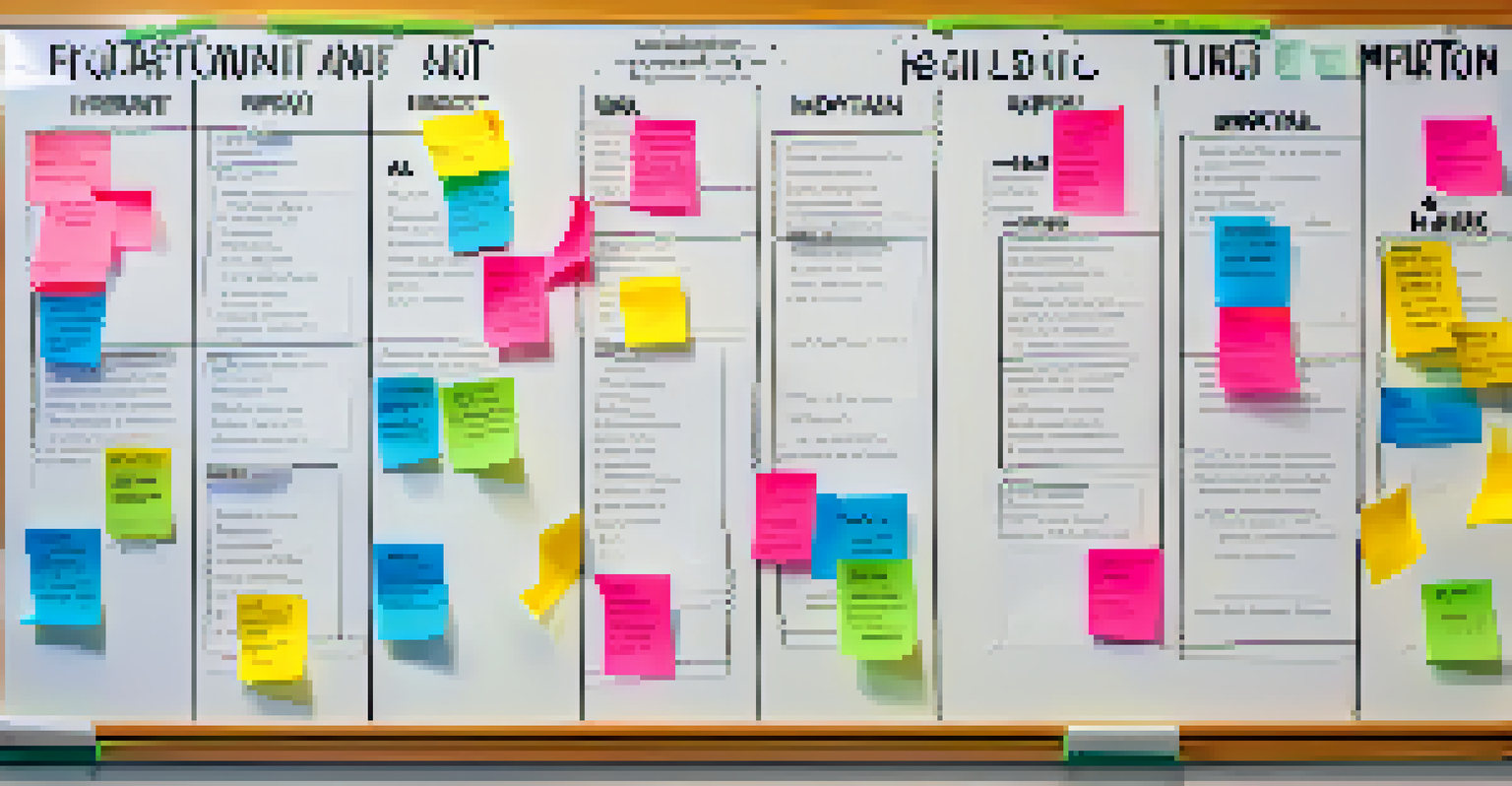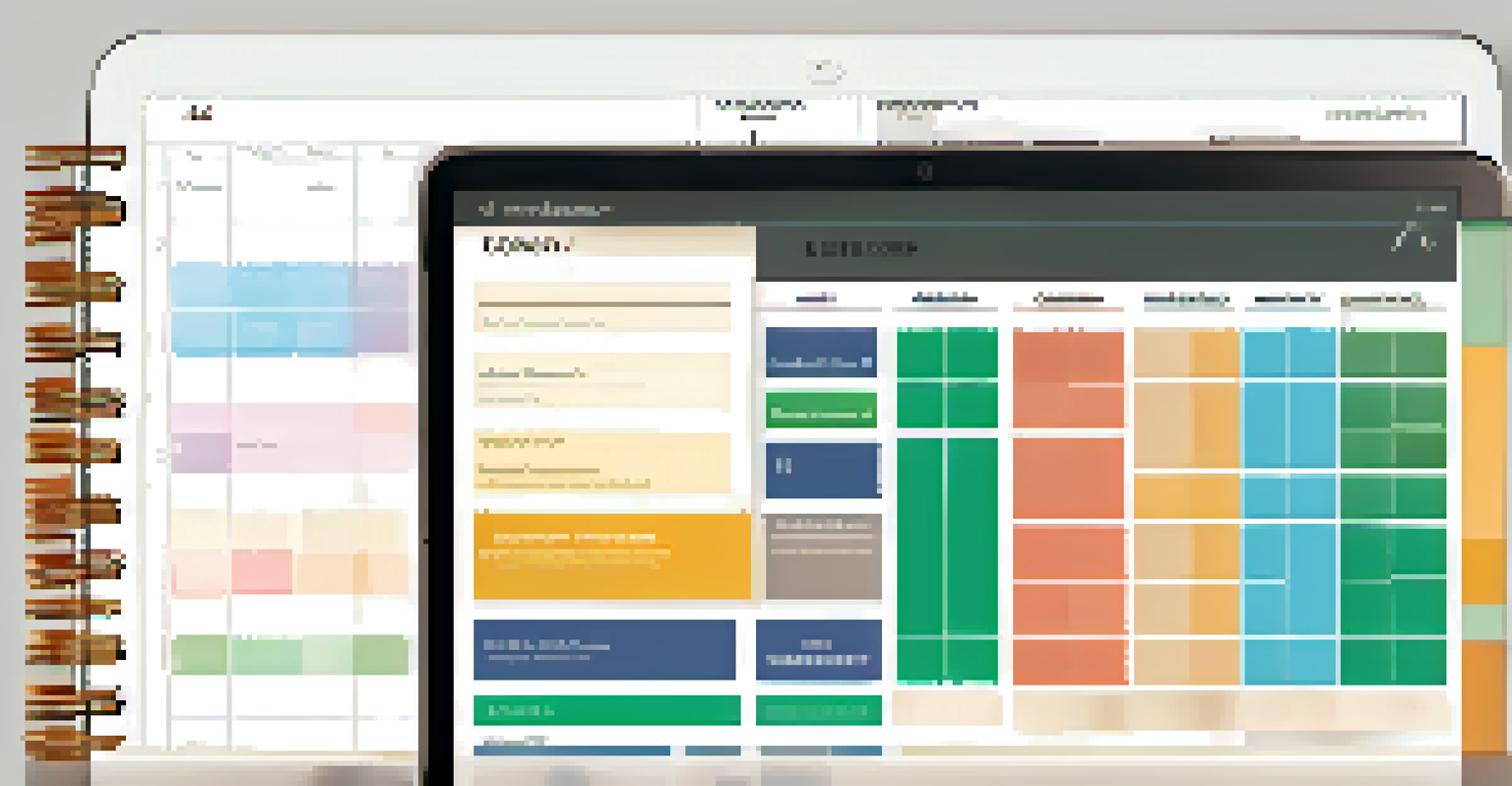Finding Balance: Time Management for Academic Success

Understanding Time Management and Its Importance
Time management is the ability to plan and control how you spend your hours. For students, this skill is crucial, as it directly impacts academic success. By managing your time wisely, you can reduce stress and improve your productivity.
Time management is life management.
Imagine trying to juggle multiple balls at once; without proper timing, some will inevitably drop. Similarly, effective time management helps you balance classes, study sessions, and leisure activities without feeling overwhelmed.
Ultimately, mastering time management not only enhances your academic performance but also helps you develop skills that will benefit you throughout your life.
Setting Clear Goals for Academic Success
To manage your time effectively, start by setting clear, achievable goals. Think of your academic journey as a roadmap; without specific destinations, it's easy to get lost. Break your long-term objectives into smaller, manageable tasks to keep you focused.

For instance, instead of saying, 'I want to do well in my classes,' specify, 'I will study for two hours every evening.' This clarity helps direct your efforts and makes it easier to measure progress.
Master Time Management Skills
Effective time management helps students reduce stress and enhance productivity, leading to better academic performance.
As you achieve these smaller goals, you'll build momentum, and this can significantly boost your motivation to tackle more challenging tasks.
Creating a Flexible Study Schedule
A well-structured study schedule is your best friend when it comes to time management. Think of it like a recipe; each ingredient has a specific time and place for optimal results. Block out dedicated time for studying, attending classes, and completing assignments.
Setting goals is the first step in turning the invisible into the visible.
However, flexibility is key. Life can throw unexpected challenges your way, so be prepared to adjust your schedule when needed. This adaptability ensures that you stay on track without feeling confined.
Using tools like planners or digital calendars can help you visualize your commitments and make necessary adjustments seamlessly.
Prioritizing Tasks with the Eisenhower Matrix
The Eisenhower Matrix is a fantastic tool for prioritizing tasks based on urgency and importance. Picture a four-box grid: urgent and important tasks go in one box, while tasks that are neither fall into another. This helps you focus on what truly matters.
By categorizing your tasks this way, you can avoid the trap of spending too much time on less critical activities. Prioritization helps you allocate your energy wisely, ensuring that you tackle high-impact tasks first.
Set Clear, Achievable Goals
Breaking long-term academic objectives into smaller, manageable tasks keeps students focused and motivated.
You might find that some tasks can be delegated or eliminated altogether, freeing up valuable time for your studies.
Minimizing Distractions for Better Focus
Distractions are everywhere, especially for students. Whether it's social media notifications or background noise, they can easily derail your study sessions. To combat this, create an environment conducive to focus—think quiet spaces and minimal interruptions.
Consider employing techniques like the Pomodoro Technique, where you study intensely for 25 minutes and then take a 5-minute break. This method not only enhances concentration but also gives your brain a chance to recharge.
By minimizing distractions and incorporating breaks, you'll find that your productivity soars and your study sessions feel less taxing.
Utilizing Technology for Efficient Time Management
In today's digital age, numerous apps and tools can assist with time management. From task managers like Todoist to calendar apps like Google Calendar, these tools can help you organize your tasks and deadlines effectively. Think of technology as a supportive ally in your academic journey.
Many of these apps offer features that send reminders, helping you stay on top of your commitments. By integrating technology into your routine, you can streamline your workflow and reduce the mental load of remembering every task.
Use Tools for Efficient Planning
Utilizing technology like planners and task management apps can streamline workflows and improve time management.
Experiment with different tools to find what works best for you, and don’t hesitate to adjust your approach as your needs change.
Reflecting on Your Time Management Practices
Regular reflection is essential to improving your time management skills. Take time each week to assess what worked well and what didn't. This practice allows you to celebrate your successes and identify areas for improvement.
For example, if you notice that you consistently struggle to meet deadlines, it might be time to reevaluate your scheduling methods or workload. Reflection is like looking in a mirror; it helps you understand your habits and make necessary adjustments.

By being proactive in reflecting on your practices, you can continuously enhance your approach to time management, leading to greater academic success.